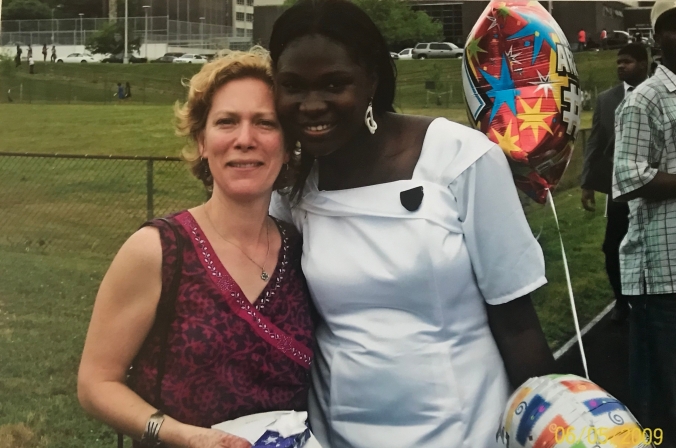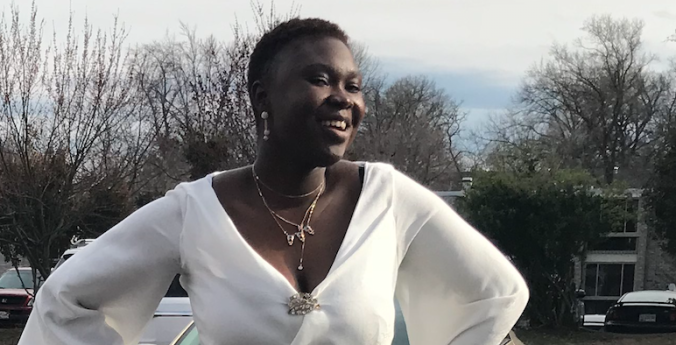Cindy Kolade is a DREAMer. Like many DACA-eligible youth enrolled in the Deferred Action for Childhood Arrivals program (DACA), her parents brought her to America illegally when she was a child.
DACA allows Kolade to pay taxes, support her family, and pay in state tuition at Towson University. To Kolade, this is the American Dream. However, whether the “Dream” endures for future generations of immigrants is uncertain.

Kolade with a high school teacher
We first were introduced to DACA in 2012 under the Obama administration. By this point though, DACA was partisan. Nevertheless, a DACA-esque policy existed in Congress before passing in 2012.
To be eligible for DACA, applicants had to have been living in the United States before the age of 16. They needed to be enrolled in high school, college or pursuing a General Education Degree (GED), with no criminal record.
DACA provides temporary relief from deportation to over 800,000 undocumented young immigrants. Like Kolade, many of these DACA youth juggle college, work, and family life, all under the radar of unassuming classmates, co-workers, and friends.
Until recently, a majority of Americans correctly assumed that most DACA recipients were Latino. Still, research shows that there is a significant number of Asian, African and Carribean immigrants registered under DACA.
According to the Migration Policy Institute, an estimated 76-percent of DACA-eligible youth are Latino; the majority group in America. In Montgomery and Prince George’s counties though, the ratio of African DACA candidates is significantly larger than that of the Latino community.

DACA eligibility chart via migrationpolicy.org
Enter Cindy Kolade, an African immigrant who is seemingly an anomaly outside of the DACA community. On Towson’s campus, DACA students like Kolade aren’t as visible as the Latino group, but they’re there; the data proves it.
“We, as Africans are counted, but we don’t see ourselves being shown as a part of the Dream Act, although we are here…that’s one of the problems,” Cindy Kolade said.
According to Kolade, most African DACA-eligible immigrants keep their DACA status a secret for fear of deportation. She says many African immigrants she meets feel they don’t have the same support Latino’s have in the U.S, and so don’t speak up for themselves.
“We don’t have people backing us up, so most of us are scared to tell others we have DACA or are undocumented. We can’t go back to our countries.”
There are support groups and organizations for African immigrants who have DACA status though. Undocublack, Casa de Maryland, and LULAC are a few organizations that offer services to African, Latino and Asian immigrant communities. They assist immigrants who struggle with integrating American culture and provide a community for those who would rather keep their DACA status concealed.
Though the majority of DACA-eligible youth are Latino in the U.S, the Asian and African DREAMer community is flourishing; working to achieve the American Dream.

Kolade currently via Cindy Kolade
Kolade says she is unsure about future of DACA, but believes that when African immigrants speak up for themselves change will come.
“To all African immigrants I say, stand up and fight for yourself. Yes, you are undocumented, but you have rights, just like everybody else.”